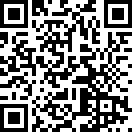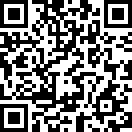 |
Research Article
Barriers and facilitators to voluntary blood donation in Enugu: An assessment of adult donor behavior
1 Department of Haematology and Immunology, Enugu State University College of Medicine, Parklane, Enugu, Enugu State, Nigeria
2 Children Emergency Room, Department of Paediatrics, Enugu State University Teaching Hospital (ESUTH), Enugu, Enugu State, Nigeria
3 Department of Haematology and Blood Transfusion, Nnamdi Azikiwe University, Nnewi Campus, Nnewi, Anambra State, Nigeria
Address correspondence to:
Chiesonu Dymphna Nzeduba
Consultant Paediatrician and Unit Head, Children Emergency Room, Paediatrics Department, Enugu State University Teaching Hospital (ESUTH), Enugu, Enugu State,
Nigeria
Message to Corresponding Author
Article ID: 100086Z02OE2025
Access full text article on other devices

Access PDF of article on other devices

How to cite this article
Eze O, Nzeduba CD, Efobi C. Barriers and facilitators to voluntary blood donation in Enugu: An assessment of adult donor behavior. Int J Blood Transfus Immunohematol 2025;15(1):1–11.ABSTRACT
Aims: The aim of this study is to explore the knowledge, attitude, and practice of adults in Enugu metropolis toward voluntary blood donation (VBD).
Methods: Multilevel random sampling was used to select areas and participants, data were collected through a close-ended, interviewer-administered questionnaire that assessed participants’ knowledge, attitudes, and practices (KAP) related to VBD. Data were analyzed using IBM SPSS version 23 (IBM Corp., Armonk, NY, USA).
Results: Findings indicate that 93.6% (n=233) of respondents were aware of blood donation, with primary sources of this knowledge being television (32.2%, n=75) and friends (21.9%, n=51), while 6.4% (n=16) were not. Findings also reveal that 70.8% (n=165) of respondents view blood donation positively, while 9.9% (n=23) perceive it negatively, 19.3% (n=45) remain neutral. Substantial majority, 76.3% (n=190), were willing to donate blood if requested, while 23.7% (n=59) expressed unwillingness to donate, with various reasons cited for this reluctance, 29.6% (n=59) perceived contacting infection as a harmful effect of voluntary blood donation. 37.3% (n=93) of respondents have previously donated blood, while 62.7% (n=156) have not.
Conclusion: This study demonstrates a high level of awareness and specific beliefs about blood donation eligibility and safety, with considerable portion holding concerns about infection risk. There is predominantly a positive attitude toward voluntary blood donation, and while majority display willingness to donate blood, a notable subset remains hesitant due to personal, psychological, and religious concerns. These insights suggest a need for targeted educational and outreach efforts to address fears and misconceptions, as well as to provide reassurance regarding the safety and benefits of blood donation.
Keywords: Behavior, Blood donation, Enugu, Voluntary
SUPPORTING INFORMATION
Acknowledgments
Thanks to Mr. Ejimofor Chibuzor Daniel for editing the manuscript to match publication format.
Author ContributionsOnyinye Eze - Substantial contributions to conception and design, Acquisition of data, Analysis of data, Interpretation of data, Drafting the article, Revising it critically for important intellectual content, Final approval of the version to be published
Chiesonu Dymphna Nzeduba - Substantial contributions to conception and design, Acquisition of data, Analysis of data, Interpretation of data, Drafting the article, Revising it critically for important intellectual content, Final approval of the version to be published
Chilota Efobi - Substantial contributions to conception and design, Acquisition of data, Analysis of data, Interpretation of data, Drafting the article, Revising it critically for important intellectual content, Final approval of the version to be published
Guarantor of SubmissionThe corresponding author is the guarantor of submission.
Source of SupportNone
Consent StatementWritten informed consent was obtained from the patient for publication of this article.
Data AvailabilityAll relevant data are within the paper and its Supporting Information files.
Conflict of InterestAuthors declare no conflict of interest.
Copyright© 2025 Onyinye Eze et al. This article is distributed under the terms of Creative Commons Attribution License which permits unrestricted use, distribution and reproduction in any medium provided the original author(s) and original publisher are properly credited. Please see the copyright policy on the journal website for more information.





